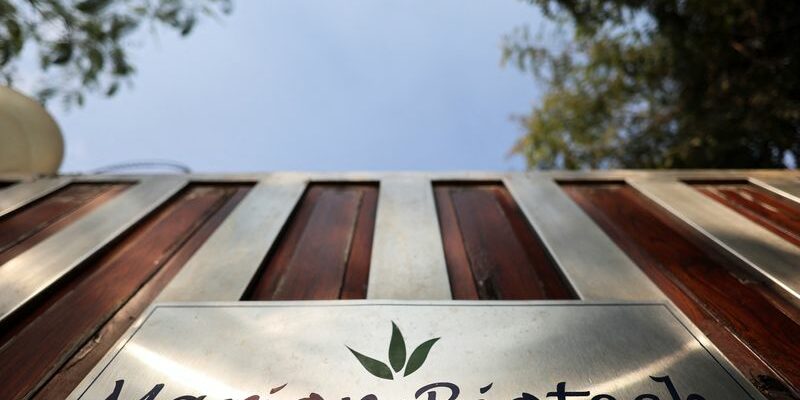by Krishna N. Das
NEW DELHI (Reuters) – India may issue an alert over cough syrup exported by Marion Biotech, whose products have been linked to deaths in Uzbekistan, after tests found many of the company’s drug samples contained toxic substances, a drug inspector said on Saturday.
Indian police on Friday arrested three Marion employees and are looking for two managers after tests at a government laboratory found 22 out of 36 syrup samples to be “adulterated and adulterated”.
New Delhi has also denied claims that cough syrup made by another Indian company, Maiden Pharmaceuticals, led to child deaths in The Gambia last year.
Vaibhav Babbar, an inspector involved in Marion’s investigation, told Reuters the samples were contaminated with ethylene glycol and diethylene glycol. According to the World Health Organization, these toxic substances were found in products sold by the two companies in both countries.
No less than 70 children died in Gambia and 19 in Uzbekistan.
In The Gambia, Indonesia and Uzbekistan, more than 300 children, most under the age of 5, died last year from acute kidney injury associated with contaminated drugs, the WHO said in January.
In addition, the WHO has indicated that the Philippines, East Timor, Senegal and Cambodia could be affected as the drugs in question are on sale there. It also called for “immediate and concerted action” by its 194 member states to prevent further deaths.
“As Marion’s drugs have been distributed to many countries, I pray that nothing else happens,” Vaibhav Babbar said. “The Ministry of Health could issue an alert. It could do it. It would be good to issue an alert,” he added, adding that he did not know if an alert was actively being considered.
UZBEKISTAN AND THE GAMBIA IN THE FRONT LINE
A spokesperson for India’s health ministry did not immediately respond to requests for comment. Marion did not return calls from Reuters and did not immediately respond to an email seeking comment.
A government alert warns people in all countries to remove the products from their shelves, although it carries no legal penalties.
Vaibhav Babbar said the drugs were also exported to Kyrgyzstan and Cambodia.
He is part of a team that inspected the Marion factory four times after Uzbekistan said in December that children had died after consuming the company’s cough syrups. India suspended production of Marion soon after.
Analyzes by Uzbekistan’s health ministry showed that the syrups, Ambronol and DOK-1 Max, were contaminated with unacceptable amounts of diethylene glycol or ethylene glycol, the WHO said in an alert issued in January.
According to these analyses, the syrups were administered in doses higher than the norm for children, either by parents mistaking the product for cold remedies, or on the advice of pharmacists.
In October, India suspended production of Maiden for violating manufacturing standards after the WHO said four of its cough syrups may have killed dozens of children in The Gambia.
(Reporting by Krishna N. Das; additional reporting by Saurabh Sharma; editing by William Mallard)
©2023 Thomson Reuters, all rights reserved. Reuters content is the intellectual property of Thomson Reuters or its third party content providers. Any copying, republication or redistribution of Reuters content, including by framing or similar means, is expressly prohibited without the prior written consent of Thomson Reuters. Thomson Reuters shall not be liable for any errors or delays in content, or for any actions taken in reliance thereon. “Reuters” and the Reuters Logo are trademarks of Thomson Reuters and its affiliated companies.
